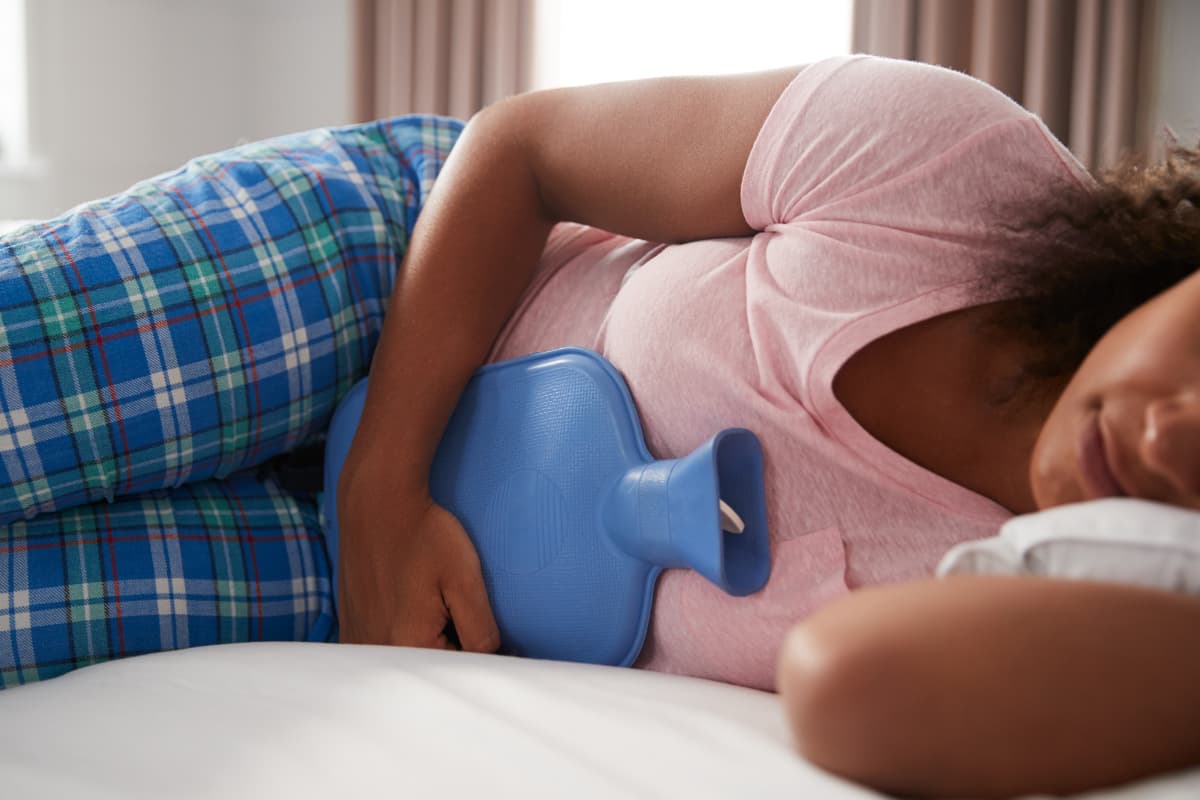What You Need to Know About Menopause

Menopause is a natural life transition for people who menstruate. Although all women will experience menopause, not many have a good idea of what to expect when it happens to them. Read on to learn what you need to know about menopause so that you can navigate this life stage feeling confident and empowered.
What Is Menopause?
Menopause is when ovaries stop producing fertile eggs, menstrual periods cease, and you enter a non-fertile stage of life. You are officially in menopause when you haven’t menstruated for 12 consecutive months that’s not due to another cause, such as cancer treatment or surgical removal of the ovaries.
When Will It Happen?
Most women reach menopause in their early to mid-50’s, although it can come earlier or later. The average age in the U.S. is 51. One way to estimate when menopause might happen to you is to look at when it happened to your mother. There’s a good chance it will take place around the same time for you.
Premature menopause (before age 40) happens to about 1% of women and can occur for several reasons. Surgical removal of your ovaries, chemotherapy, and radiation are some causes. Researchers have found that if you smoke, you might start menopause earlier than non-smokers, and if you are underweight, you are also at increased risk of premature menopause.
How Will I Know I’m in Menopause?
The transitional time leading up to menopause is called perimenopause, and during that time your periods will become irregular and further apart. Perimenopause can last for months or a decade, although the average duration is about four years. You can be certain you are officially in menopause when you haven’t had a menstrual period for one full year.
Tests to determine if you are in perimenopause are not considered helpful as your hormone levels fluctuate greatly, even within a single day. Even after you reach menopause naturally, healthcare clinicians often don’t find it necessary to test. However, you can ask your healthcare clinician to check your hormone levels for confirmation. When you are in menopause, your estrogen levels will be low, and your follicle-stimulating hormone (FSH) levels will be high.
Once you have reached menopause, you are considered to be in postmenopause, and this stage will last for the remainder of your life.
What Are Some Symptoms of Menopause?
The decreasing estrogen and fluctuating hormone levels leading to menopause can cause some unique symptoms, including:
- Irregular Periods
- Hot Flashes
- Night Sweats
- Moodiness
- Dry Skin
- Decreased Sex Drive
- Vaginal Dryness
- Sleep Problems
In perimenopause and early postmenopause, you may experience some or all of these symptoms, along with a host of others. Hot flashes and skipped periods are often the first major signs you are in late perimenopause and nearing menopause. The experience of symptoms can range from mild to severe, and the severity may change depending on the stage you are in. Every woman’s experience is unique and it is based on multiple factors, including lifestyle and behavioral factors, ethnicity, past and present history of trauma or mental health concerns, and more.
As you move into menopause and postmenopause, the permanently low estrogen levels in your body can lead to an increase in your cholesterol level and risk for cardiovascular disease, the number one killer of women. Low estrogen can also cause a loss of bone density in older women, which can lead to fractures.
What Can I Do About My Symptoms?
Luckily, we live in a time with many options for the management of menopause symptoms, from science-backed holistic options to prescription therapies.
Menopausal hormone therapy (MHT) might be the answer for you, depending on your symptoms, age, and menopause stage. Hormone therapy is beneficial for hot flashes and vaginal dryness and can also improve bone health. Many women find that MHT increases their quality of life. Not everyone is a candidate for MHT, so discuss your options for symptom management with your healthcare clinician or use the hormone therapy decision support tool developed by top menopause experts in the Midday app. If your clinician is not up-to-speed on the latest research regarding the benefits or risks of MHT, Midday is a great alternative, and you can also request a virtual care appointment with a menopause specialist at the Mayo Clinic to talk about whether hormone therapy or another therapeutic strategy may be right for you.
Regular weight-bearing exercise can help maintain your bone density, keep off extra weight, and improve your sleep and mood. There is not a lot of evidence that exercise has a positive effect on hot flashes and other vasomotor symptoms of menopause, but experts agree that exercise is beneficial for so many other symptoms and overall health that it’s a no-brainer to recommend regular, vigorous exercise to midlife women.
Vaginal dryness and discomfort with sex can be alleviated with non-systemic vaginal estrogen creams or rings. Vaginal estrogen is considered safe and effective for most women, but again, your healthcare clinician will help you make the best decision based on your health history and a physical examination. Most women start with over-the-counter lubricants and moisturizers. However, vaginal dryness tends to worsen in postmenopause, necessitating the exploration of new options.
If you are experiencing depression or anxiety, talk to your clinician about anti-depressant and anti-anxiety medication. If you have a history of anxiety and depression, it can worsen during this life stage. Be sure to get the help you need to support good mental health.
Nutrition can also play a large role in how you feel during menopause. Researchers have found that eating a healthy, low-fat diet and getting enough vitamin D, magnesium, calcium, and other vitamins and minerals can help preserve bone density and minimize cardiovascular risk and weight gain. The Mediterranean diet, more of a way of eating rather than a diet per se, is the healthiest of all diets. The green Mediterranean diet, a version that emphasizes leafy greens and other foods, has been shown to help with brain health. In general, ditching the diet and adopting a plant-based approach with plenty of protein serves most women well.
Empowered and Living Better Through Knowledge
Menopause may be inevitable, but you are not powerless against it. Armed with the knowledge of what to expect, you will be prepared to make informed decisions about how you want to manage any symptoms you experience and create the life you want to live.
Looking for more expert support on perimenopause and what to expect next? Download Midday from the App Store or visit us at Midday.Health.
Jennifer Turkyilmaz, RN, BSN, is a medical writer who worked for many years in women’s health as a high-risk pregnancy nurse. She is also a newly menopausal woman who wishes she had known more about what to expect before it happened to her.
Sign up for more unique women’s health content
By submitting this form, you agree to the Lisa Health Privacy Policy and Terms of Use


